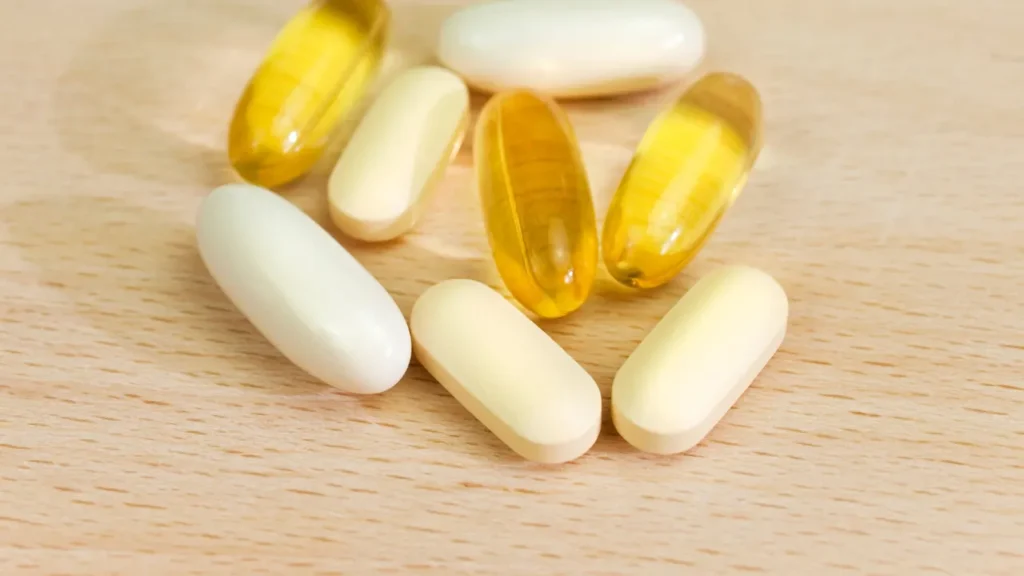The alismataceae family includes the perennial aquatic herb known as water plantain (alisma plantago-aquatica). In Europe, Asia, and North America, it is frequently found in marshy places, shallow pools, and on the edges of ponds, lakes, and streams. Ayurveda and Traditional Chinese Medicine (TCM) are two traditional medical systems that have long used water plantain for its health benefits. The scientific knowledge of its chemical components, health advantages, ideal dosage, side effects, potential drug interactions, and safe use, however, is still restricted despite its long history of use. In order to provide a thorough understanding of water plantain’s potential as a nutritional supplement, this article will cover the important attributes of this often overlooked plant.
You May Also Like:
Battle of the Brain Boosters: Brain MD Omega 3 Power vs. Kori Krill Oil Mind & Body
Build Bright Brains with Omega-3s: The 7 Powerful Benefits for Brain Development in Kids
Water Plantain: Benefits, Dosage, Side Effects, Drug Interactions, And Other Important Information is an original (NootropicsPlanet) article.
Nature of Water Plantain
The perennial herbaceous plant known as water plantain is distinguished by its tall, upright stem, whorls of small, white flowers, and broad, oval-shaped leaves with long petioles. The plant grows well in marshy and shallow water, and several traditional medical systems have used its rhizomes, leaves, and seeds for therapeutic purposes.
Health Benefits of Water Plantain
1. Diuretic Effects: Water plantain has historically been used as a diuretic to encourage greater excretion and production of urine. Triterpenoids in particular, alisol A and alisol B, are responsible for the diuretic effects of water plantain. These substances encourage the kidneys to produce more urine, which helps the body flush out extra water and sodium, alleviating edema and hypertension.
2. Anti-inflammatory Qualities: Water plantain contains flavonoids and phenolic acids like quercetin, kaempferol, and chlorogenic acid that have anti-inflammatory qualities. They prevent the synthesis of pro-inflammatory cytokines and enzymes such cyclooxygenase-2 (COX-2), interleukin-6 (IL-6), and tumor necrosis factor-alpha (TNF-). These characteristics could help treat inflammatory disorders such as inflammatory bowel disease, asthma, and arthritis.
3. Antioxidant Effects: The flavonoids and phenolic acids found in water plantains also include antioxidant qualities that neutralize free radicals and guard against oxidative stress. Water plantain can aid in the prevention of chronic illnesses like cancer, cardiovascular disease, and neurological disorders by lowering oxidative stress.
4. Hepatoprotective Activity: In pre-clinical research, the triterpenoids found in water plantains, such as alisol A and alisol B, shown hepatoprotective properties. These substances can lessen liver inflammation and fibrosis while defending liver cells from harm brought on by poisons like carbon tetrachloride. As a result, water plantain may have therapeutic uses for conditions including hepatitis and liver cirrhosis.
5. Antimicrobial Activity: Sesquiterpenes found in water plantains, like -eudesmol and alismol, have the ability to fight against a variety of bacteria and fungi. The immune system may benefit from and be treated for infections as a result of this antimicrobial activity.

Chemistry of Water Plantain
Numerous bio-active substances, including triterpenoids, flavonoids, phenolic acids, and sesquiterpenes, can be found in water plantains’ chemical makeup. The main triterpenoids included in water plantain are alisol A and alisol B, which have a range of pharmacological effects including anti-inflammatory, anticancer, and hepatoprotective characteristics. It also contains flavonoids, including quercetin and kaempferol, which support its antioxidant properties. The plant’s anti-inflammatory and antioxidant properties are enhanced by phenolic acids, such as chlorogenic acid and caffeic acid. Sesquiterpenes with characteristics that are both antibacterial and neuroprotective include alismol and -eudesmol.
Physiological Properties of Water Plantain
The bio-active components in water plantain, including triterpenoids, flavonoids, phenolic acids, and sesquiterpenes, contribute to its therapeutic effects through many physiological properties:
1. Diuretic Effects: Triterpenoids, particularly alisol A and alisol B, stimulate the kidneys to produce more urine. They prevent sodium and water reabsorption by the renal tubules, resulting in increased fluid excretion. In hypertensive individuals, this technique can help relieve fluid retention and lower blood pressure.
2. Anti-inflammatory Properties: Water plantain flavonoids and phenolic acids such as quercetin, kaempferol, chlorogenic acid, and caffeic acid influence inflammatory pathways. They block the synthesis of pro-inflammatory cytokines and enzymes such TNF-, IL-6, and COX-2. Water plantain reduces inflammation and alleviates associated symptoms by inhibiting these inflammatory mediators.
3. Antioxidant Properties: Flavonoids and phenolic acids have antioxidant properties that help neutralize free radicals and reduce oxidative stress. To combat the damage produced by reactive oxygen species (ROS) and reactive nitrogen species (RNS), these substances can upregulate the body’s antioxidant defenses, such as superoxide dismutase (SOD) and glutathione peroxidase (GPx). Water plantain can help prevent chronic diseases connected with oxidative damage by lowering oxidative stress.
4. Hepatoprotective Activity: Triterpenoids, such as alisol A and alisol B, have hepatoprotective effects by blocking the activation of hepatic stellate cells (HSCs), which play an important role in liver fibrosis. These chemicals can also inhibit the generation of pro-inflammatory cytokines and oxidative stress in liver cells, thereby protecting them from toxicity and inflammation.
5. Antimicrobial Activity: The sesquiterpenes found in water plantain, such as -eudesmol and alismol, have antimicrobial characteristics that cause cell lysis and death by damaging the cell walls and membranes of bacteria and fungi. These antimicrobial activities can help fight against infections and benefit the immune system.

Optimal Dosage of Water Plant Plantain
The ideal water plantain dosage is determined by specific characteristics such as age, weight, and certain health conditions. Unfortunately, there is no defined standard dosage for water plantain due to a lack of scientific research. Water plantain is typically ingested in traditional medicine systems as a tea or decoction made from dried rhizomes, with daily dosages ranging from 6 to 12 grams. Before beginning any supplementation with standardized extracts or supplements, it is critical to follow the manufacturer’s advice and speak with a healthcare expert.
Side Effects of Water Plantain
Although water plantain is generally safe for most people when taken correctly, some negative effects may arise. These include gastrointestinal problems such as diarrhea, nausea, and stomach cramps. Furthermore, the diuretic effects of water plantain can cause dehydration or electrolyte imbalances if supplements are not taken properly. When taking water plantain, it is critical to maintain proper hydration and electrolyte levels. Water plantain should be avoided by pregnant and lactating women because there is inadequate information on its safety in these populations.

Potential Substance Interactions with Water Plantain
Water plantain’s diuretic effects may interact with diuretic drugs, potentially leading to excessive fluid loss and electrolyte abnormalities. Loop diuretics, such as furosemide, and thiazide diuretics, such as hydrochlorothiazide, are examples of these drugs. Water plantain can also interact with anti-hypertensive drugs, improving their blood pressure-lowering effects while increasing the risk of hypotension. Before using water plantain in conjunction with any drugs or supplements, speak with your healthcare provider.
Responsible Use of Water Plantain
Consider the following tips to guarantee the safe and proper use of water plantain:
1. Before using water plantain, consult with your healthcare expert, especially if you have any pre-existing health concerns or are taking any drugs or supplements.
2. Begin with a small dose and gradually raise it to determine your tolerance and reduce the danger of negative side effects.
3. Because water plantain has diuretic properties, maintain enough hydration and electrolyte balance.
4. Keep an eye out for any side effects and quit using water plantain if they develop.
5. To assure safety and performance, select high-quality water plantain products from renowned suppliers.
Water Plantain:
Conclusion
The physiological properties of water plantain help it to promote overall health, and the bio-active substances in water plantain confer many possible medicinal advantages. More research is needed, however, to completely understand the intricacies of these systems and to optimize the use of water plantain as a nutritional supplement. Be sure to speak to your doctor before taking water plantain as a nutritional supplement.

References:
- The potential health benefits of water plantain (Alisma plantago-aquatica). Retrieved from: https://www.ncbi.nlm.nih.gov/pmc/articles/PMC5677250/
- Hepatoprotective effects of alisol A 24-acetate from Alisma plantago-aquatica against carbon tetrachloride-induced liver injury in mice. Retrieved from: https://pubmed.ncbi.nlm.nih.gov/22526919/
Important Note: The information contained in this article is for general informational purposes only, and should not be construed as health or medical advice, nor is it intended to diagnose, prevent, treat, or cure any disease or health condition. Before embarking on any diet, fitness regimen, or program of nutritional supplementation, it is advisable to consult your healthcare professional in order to determine its safety and probable efficacy in terms of your individual state of health.
Regarding Nutritional Supplements Or Other Non-Prescription Health Products: If any nutritional supplements or other non-prescription health products are mentioned in the foregoing article, any claims or statements made about them have not been evaluated by the U.S. Food and Drug Administration, and such nutritional supplements or other health products are not intended to diagnose, treat, cure, or prevent any disease.


